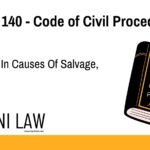The Karnataka High Court recently dropped stalking charges under Section 354D IPC against an accused, ruling that sending profane text messages does not amount to stalking. Justice M Nagaprasanna held that mere exchange of abusive messages between two individuals, even if once in a relationship, does not fulfil the legal criteria for stalking. The case arose from a complaint filed by the woman, who alleged multiple offences, including voyeurism, criminal intimidation, and caste-based atrocities. The petitioner argued the case was a misuse of the legal system following a failed relationship and disputed marriage. The Court noted that while stalking charges were loosely applied, the allegations of voyeurism under Section 354C IPC were supported by the charge sheet, as the accused was said to have recorded intimate videos. It also upheld charges under the SC/ST Act, stating the petitioner knew the complainant belonged to a Scheduled Tribe.
While refusing to quash the entire case, the Court allowed proceedings to continue for serious offences, excluding stalking. The ruling highlights the need for precise legal application and protects individuals from misuse of criminal provisions.








